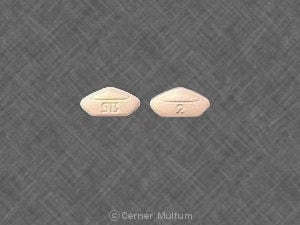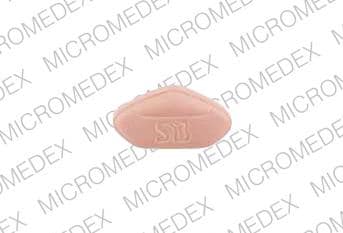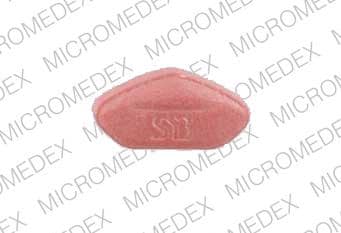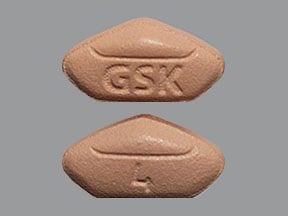What is Avandia?
Avandia is a prescription medicine used with diet and exercise to treat adults with type 2 (“adult-onset” or “non-insulin dependent”) diabetes mellitus (“high blood sugar”).
Avandia helps to control high blood sugar. Avandia may be used alone or with other diabetes medicines. Avandia can help your body respond better to insulin made in your body. Avandia does not cause your body to make more insulin.
Avandia is not for people with type 1 diabetes mellitus or to treat a condition called diabetic ketoacidosis.
It is not known if Avandia is safe and effective in children younger than 18 years old.
What is the most important information I should know about Avandia?
Avandia may cause serious side effects, including:
New or worse heart failure
- The risk of heart failure may be higher in people who take Avandia with insulin. Most people who take insulin should not also take Avandia.
- Avandia can cause your body to keep extra fluid (fluid retention), which leads to swelling (edema) and weight gain. Extra body fluid can make some heart problems worse or lead to heart failure. Heart failure means your heart does not pump blood well enough.
- If you have severe heart failure, you cannot start Avandia.
- If you have heart failure with symptoms (such as shortness of breath or swelling), even if these symptoms are not severe, Avandia may not be right for you.
Call your doctor right away if you have any of the following:
- swelling or fluid retention, especially in the ankles or legs
- shortness of breath or trouble breathing, especially when you lie down
- an unusually fast increase in weight
- unusual tiredness
Avandia can have other serious side effects. Be sure to read the section below “What are possible side effects of Avandia?”
Who should not take Avandia?
Many people with heart failure should not start taking Avandia. See “What should I tell my healthcare provider before taking Avandia?”
Do not take Avandia if:
- you are allergic to rosiglitazone or any of the ingredients in Avandia. See the end of this Medication Guide for a complete list of ingredients in Avandia.
Symptoms of a severe allergic reaction with Avandia may include:- swelling of your face, lips, tongue, or throat
- blisters on your skin or in your mouth, nose, or eyes
- problems with breathing or swallowing
- peeling of your skin
- skin rash or itching
- fainting or feeling dizzy
- raised red areas on your skin (hives)
- very rapid heartbeat
What should I tell my healthcare provider before taking Avandia?
Before starting Avandia, ask your healthcare provider about what the choices are for diabetes medicines, and what the expected benefits and possible risks are for you in particular.
Before you take Avandia, tell your healthcare provider about all of your medical conditions, including if you:
- have heart problems or heart failure.
- have type 1 (“juvenile”) diabetes or had diabetic ketoacidosis. These conditions should be treated with insulin.
- have liver problems. Your healthcare provider should do blood tests to check your liver before you start taking Avandia and during treatment as needed.
- have a type of diabetic eye disease called macular edema (swelling of the back of the eye).
- are pregnant or plan to become pregnant. It is not known if Avandia can harm your unborn baby. You and your healthcare provider should talk about the best way to control your diabetes during pregnancy. If you are a premenopausal woman (before the “change of life”) who does not have regular monthly periods, Avandia may increase your chances of becoming pregnant. Talk to your healthcare provider about birth control choices while taking Avandia. Tell your healthcare provider right away if you become pregnant while taking Avandia.
- are breastfeeding or planning to breastfeed. It is not known if Avandia passes into breast milk. You and your healthcare provider should decide if you will take Avandia or breastfeed. You should not do both.
Tell your healthcare provider about all of the medicines you take including prescription and over-the-counter medicines, vitamins, or herbal supplements. Avandia and certain other medicines can affect each other and may lead to serious side effects including high or low blood sugar, or heart problems. Especially tell your healthcare provider if you take:
- insulin.
- any medicines for high blood pressure, high cholesterol, or heart failure, or for prevention of heart disease or stroke.
Know the medicines you take. Keep a list of your medicines and show it to your healthcare provider and pharmacist before you start a new medicine. They will tell you if it is alright to take Avandia with other medicines.
How should I take Avandia?
- Take Avandia exactly as prescribed. Your healthcare provider will tell you how many tablets to take and how often. The usual daily starting dose is 4 mg a day taken one time each day or 2 mg taken two times each day. Your healthcare provider may need to adjust your dose until your blood sugar is better controlled.
- Avandia may be prescribed alone or with other diabetes medicines. This will depend on how well your blood sugar is controlled.
- Take Avandia with or without food.
- It can take 2 weeks for Avandia to start lowering blood sugar. It may take 2 to 3 months to see the full effect on your blood sugar level.
- If you miss a dose of Avandia, take it as soon as you remember, unless it is time to take your next dose. Take your next dose at the usual time. Do not take double doses to make up for a missed dose.
- If you take too much Avandia, call your healthcare provider or poison control center right away.
- Test your blood sugar regularly as your healthcare provider tells you.
- Diet and exercise can help your body use its blood sugar better. It is important to stay on your recommended diet, lose extra weight, and get regular exercise while taking Avandia.
- Your healthcare provider should do blood tests to check your liver before you start Avandia and during treatment as needed. Your healthcare provider should also do regular blood sugar tests (for example, “A1C”) to monitor your response to Avandia.
What are the possible side effects of Avandia?
Avandia may cause serious side effects including:
- New or worse heart failure. See “What is the most important information I should know about Avandia?”
- Heart attack. Avandia may increase the risk of a heart attack. Talk to your healthcare provider about what this means to you.
Symptoms of a heart attack can include the following:- chest discomfort in the center of your chest that lasts for more than a few minutes, or that goes away or comes back
- chest discomfort that feels like uncomfortable pressure, squeezing, fullness, or pain
- pain or discomfort in your arms, back, neck, jaw, or stomach
- shortness of breath with or without chest discomfort
- breaking out in a cold sweat
- nausea or vomiting
- feeling lightheaded
- Call your healthcare provider or go to the nearest hospital emergency room right away if you think you are having a heart attack.
- Swelling (edema). Avandia can cause swelling due to fluid retention. See “What is the most important information I should know about Avandia?”
- Weight gain. Avandia can cause weight gain that may be due to fluid retention or extra body fat. Weight gain can be a serious problem for people with certain conditions including heart problems. See “What is the most important information I should know about Avandia?”
- Liver problems. It is important for your liver to be working normally when you take Avandia. Your healthcare provider should do blood tests to check your liver before you start taking Avandia and during treatment as needed. Call your healthcare provider right away if you have unexplained symptoms such as:
- nausea or vomiting
- stomach pain
- unusual or unexplained tiredness
- loss of appetite
- dark urine
- yellowing of your skin or the whites of your eyes.
- Macular edema (a diabetic eye disease with swelling in the back of the eye). Tell your healthcare provider right away if you have any changes in your vision. Your healthcare provider should check your eyes regularly. Very rarely, some people have had vision changes due to swelling in the back of the eye while taking Avandia.
- Fractures (broken bones), usually in the hand, upper arm, or foot. Talk to your healthcare provider for advice on how to keep your bones healthy.
- Low red blood cell count (anemia).
- Low blood sugar (hypoglycemia). Lightheadedness, dizziness, shakiness, or hunger may mean that your blood sugar is too low. This can happen if you skip meals, if you use another medicine that lowers blood sugar, or if you have certain medical problems. Call your healthcare provider if low blood sugar levels are a problem for you.
The most common side effects of Avandia reported in clinical trials included cold-like symptoms and headache.
Tell your healthcare provider if you have any side effect that bothers you or that does not go away.
These are not all the possible side effects of Avandia. Call your healthcare provider for medical advice about side effects. You may report side effects to FDA at 1-800-FDA-1088.
Avandia Images
General information about the safe and effective use of Avandia
Medicines are sometimes prescribed for purposes other than those listed in a Medication Guide. Do not use Avandia for a condition for which it was not prescribed. Do not give Avandia to other people, even if they have the same symptoms you have. It may harm them.
If you would like more information, talk with your healthcare provider. You can ask your healthcare provider or pharmacist for information about Avandia that is written for health professionals.
How should I store Avandia?
- Store Avandia at room temperature, 59°F to 86°F (15°C to 30°C). Keep Avandia in the container it comes in.
- Safely, throw away Avandia that is out of date or no longer needed.
- Keep Avandia and all medicines out of the reach of children.
What are the ingredients in Avandia?
Active Ingredient: rosiglitazone maleate.
Inactive Ingredients: hypromellose 2910, lactose monohydrate, magnesium stearate, microcrystalline cellulose, polyethylene glycol 3000, sodium starch glycolate, titanium dioxide, triacetin, and 1 or more of the following: synthetic red and yellow iron oxides and talc.
Always check to make sure that the medicine you are taking is the correct one. Avandia tablets are triangles with rounded corners and look like this:
2 mg – pink with “GSK” on one side and “2” on the other.
4 mg – orange with “GSK” on one side and “4” on the other.









